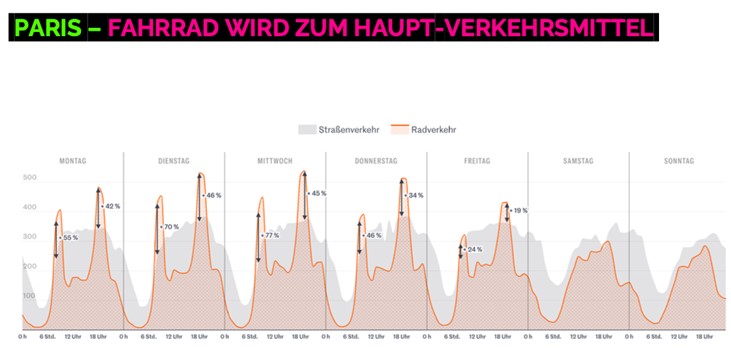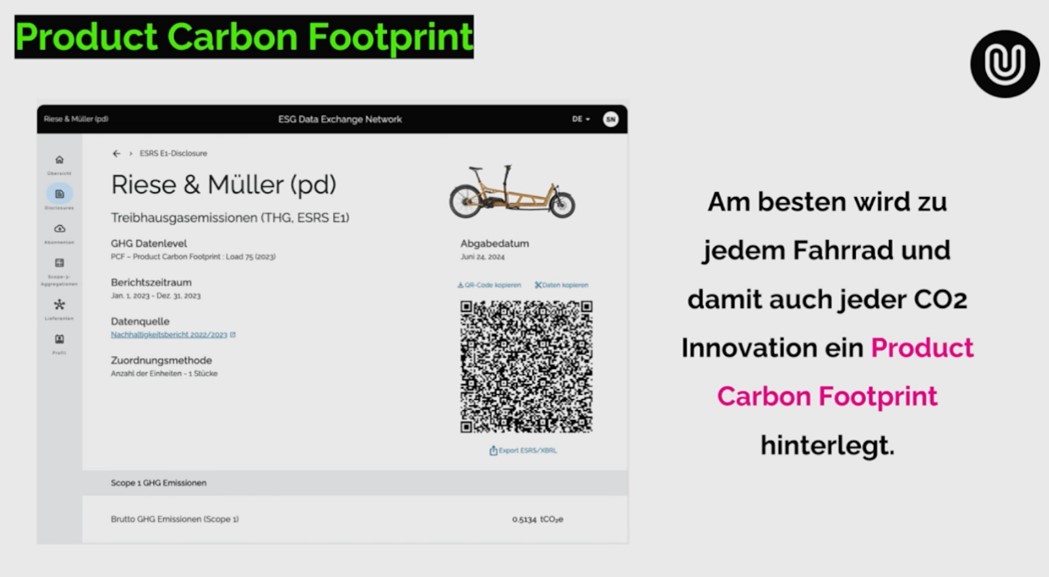
In recent years, the discussion around sustainability and climate protection has been attracting an increasing level of attention throughout the economy. Companies are facing more and more regulations compelling them to document and implement measures aimed at reducing their CO₂ emissions. One interesting development in this context is that bikes could in future play a key role in the reduction of CO2 emissions and as a symbol of sustainable company values.
The contribution by Stephan Noller, CEO of Ubirch, at Eurobike 2024 shows how the bicycle industry can contribute to decarbonization and why bicycles could play an important role in company balance sheets.

The importance of scope 3 emissions
One of the greatest challenges for companies is the management of its CO₂ emissions along the supply chain, which are categorized as scope 3 emissions. While scope 1 and scope 2 are caused by the companies’ own activities[CH1] , scope 3 emissions occur in the supply chain, which makes them more difficult to control. For many companies these indirect emissions are responsible for up to 80% of the overall emissions. Decarbonization along the supply chain is therefore critically important in achieving climate targets.
Bicycles as a sustainable mobility solution
The city of Paris has shown what can be done: bicycles are increasingly becoming the preferred means of transport and provide a valuable contribution to the reduction of urban emissions.
The bike industry has the opportunity to reinforce this trend and to give companies the chance to consider the use of sustainable mobility as part of their overall climate impact assessment. Manufacturers like Riese & Müller, for example, are already providing sustainability data for their products and these data will become even more useful if they are supplied in a machine-readable and readily accessible form.

The product carbon footprint – why every bicycle counts
A key element in determining the ecological effect of bicycles is the product carbon footprint. This CO₂ footprint enables companies to register and present the environmental impact of every bicycle. Such data create transparency and can help companies to communicate and achieve their sustainability targets. A bicycle that is produced and used sustainably is then able to help directly in reducing the company’s emissions.

Green advertising for bicycles
Another important point that Stephan Noller addresses is sustainable advertising. Advertising also causes CO₂ emissions that companies need to take into consideration. Sustainable advertising for bicycles is therefore a logical step for the bike industry to take in order to reduce its own ecological footprint while at the same time making a positive contribution to increasing awareness of sustainable mobility.
Why companies should act now
Companies have the chance to act now and integrate sustainability data. Whether by promoting bicycles as a sustainable mobility solution or by deliberately selecting sustainable advertising measures – the bike industry can become a powerful partner for companies in the battle against climate change. Companies that take sustainability seriously not only benefit from improved climate credentials but also strengthen their image and competitive position.
In short: The bicycle industry offers innovative solutions and makes it easier for companies to organize their climate balance sheets in a sustainable manner. It is time to shift the focus more towards the CO₂ effects of bicycles and establish them as part of the corporate strategy.
About Ubirch and our commitment to sustainability
Ubirch is a leading company in the ESG sector with a special focus on scope 3 emission data. Our mission is to combine sustainability and technology in order to support companies in making their carbon footprint measurable and transparent.
Thanks to our innovative technology with its protection against manipulation, we enable them to record and validate sustainability data along their entire supply chain, and in particular data for the less readily accessible scope 3 emissions.
As a member of the German Association for the Digital Economy (BDVW), we are also involved in the field of sustainability and digital responsibility and operate the ESG Data Solution in cooperation with the BVDW.

